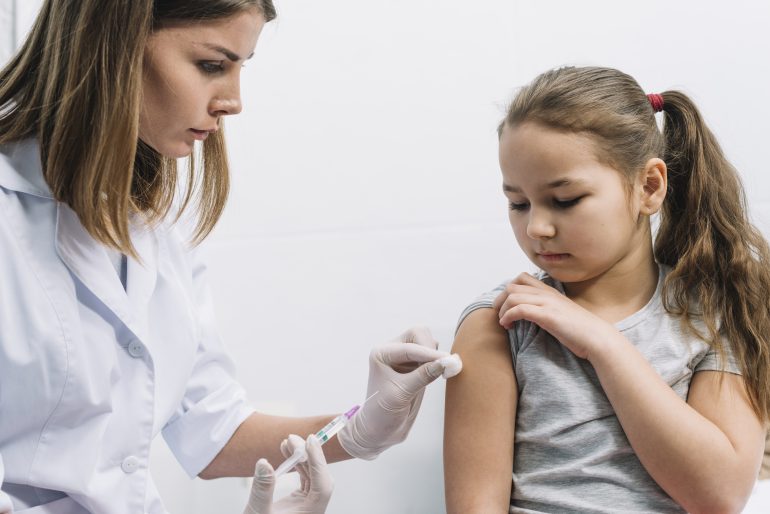Tens of thousands of children in the Czech Republic are not vaccinated against measles, warned officials from the Health Ministry and doctors yesterday at a press conference in Prague.
For example, from the group of children born in 2020, there are more than 14,000 who did not receive the vaccine until they were two years old. The country is thus falling short of the required vaccination rate of over 95%. This figure was only 87% in 2020.
This year, 28 people have been infected with measles, nearly half of those cases linked to the infection of an unvaccinated child abroad. Last year, the authorities registered one case, compared to nearly 600 in 2019. Experts expect another increase in the autumn.
“Measles is really an infection that can and does have a complicated course,” said Milan Trojanek, head of the Clinic of Infectious Diseases and Travel Medicine at the 2nd Faculty of Medicine of Charles University and the Motol University Hospital in Prague.
The most common complications are respiratory or neurological, and death can occur. The disease has no effective treatment; doctors can only alleviate the symptoms, which include high temperature, running nose, coughing, and conjunctivitis, followed by a rash, GP Ludmila Bezdickova said.
“The most serious cases of measles affect the youngest children,” said Matyas Fosum, director of the Health Ministry’s public health protection department and acting chief public health officer. The risk of death for them is one per 1,000 infections, he added.
Measles vaccination is compulsory in the Czech Republic. It is part of the MMR vaccine, which also protects against rubella and mumps. The first dose is given between the 13th and 18th month of age, the second between the 5th and 6th year.
However, parents often delay the vaccination until the children start going to kindergarten, when it becomes mandatory, Fosum said.
The disease is at least ten times more contagious than influenza, said Radomira Limberkova, head of the National Reference Laboratory for Measles at the National Health Institute (SZU).
During the latest epidemics, with hundreds of infected people in 2014 and from 2017 to 2019, dozens of health workers were also infected. Therefore, the Health Ministry is calling for them to be revaccinated, and has sent letters to hospitals urging them to check their staff vaccination and antibody levels.
This year’s outbreaks of the disease began when unvaccinated people contracted it abroad – in Azerbaijan, Uzbekistan and Russia earlier this year. May’s 13 cases were linked to a seven-year-old unvaccinated girl from Germany.
The incubation period has passed for those outbreaks, Limberkova said. “We have to be prepared for the situation to worsen in the autumn,” she warned.






